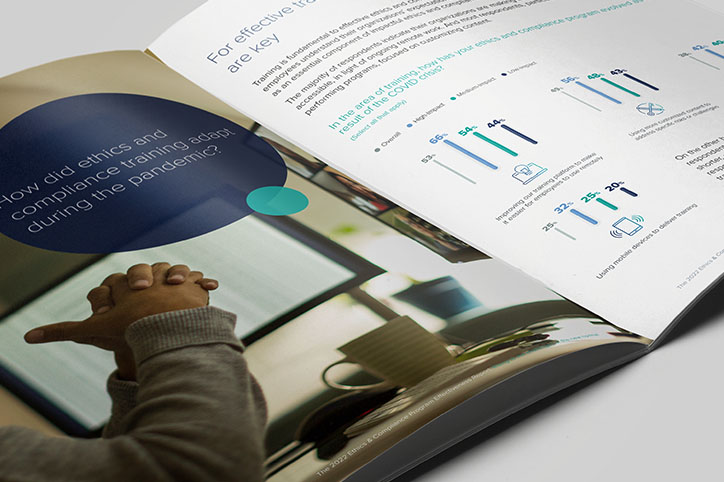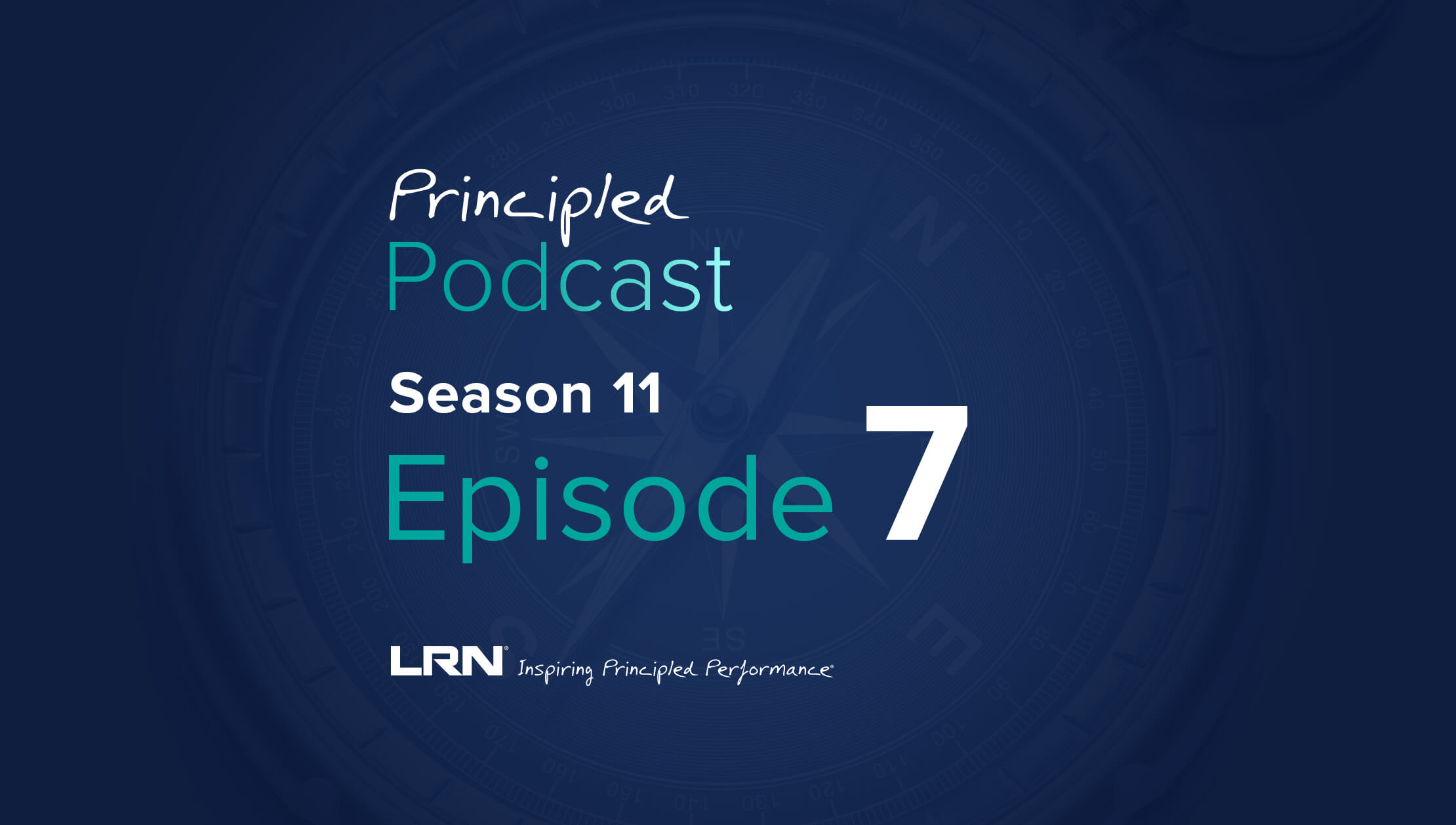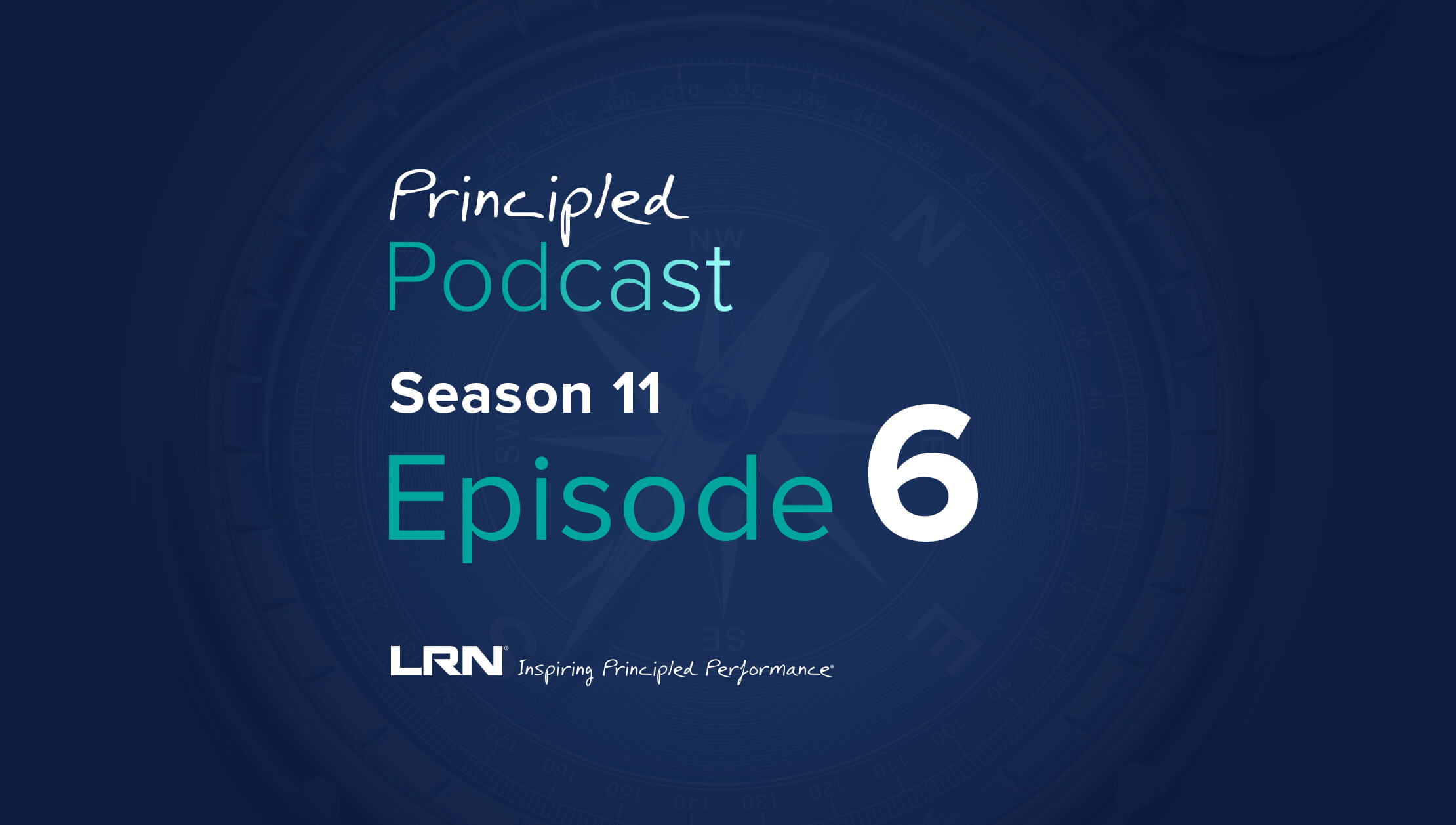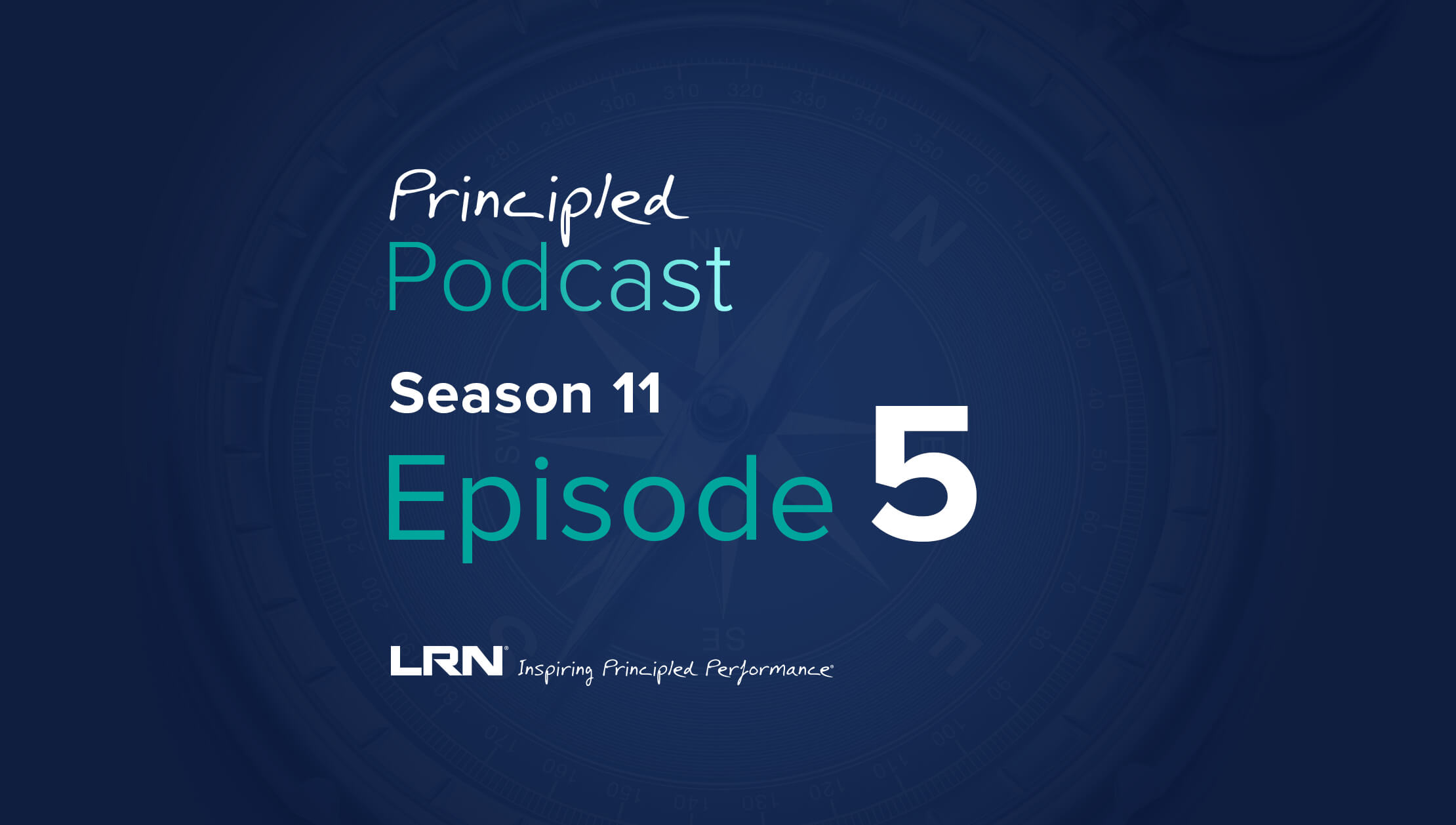LRN’s annual Ethics & Compliance Programme Effectiveness Report surveys ethics and compliance professionals worldwide to identify what makes E&C programmes effective. In an analysis of the UK region specifically, it was found the region leads in several dimensions, and matches global trends overall. The full 2022 report provides key insights into how the business community adapted their E&C programmes in the face of ongoing disruption—and shares important benchmarks to improve programme efficacy. Results are based on the input of over 1,100 ethics, compliance, and legal professionals, predominantly from organisations with at least 1,000 employees. Sixty percent of respondents are located outside North America, with 12% from the United Kingdom.
UK trends match global trends for E&C programme effectiveness
- At a high level, programmes in the UK forged ahead in their E&C efforts while continuing to navigate uncharted waters, which is consistent with our global results.
- Organisations’ ethical cultures and frameworks held firm during the crisis.
- E&C programmes helped leaders, managers, employees, and other stakeholders navigate the unforeseen and unknown.
- In general, programmes got stronger and adapted to the new normal.
- Leaders and managers rose to the challenges of the Covid-19 crisis.
UK E&C programmes outperforms others in several ways
- 91% of UK E&C programmes reported that their organisations’ ethical culture emerged stronger as a result of coping with the Covid-19 crisis. This is 11%-points higher than US programmes and 9% points higher than the global average. This is a striking and significant finding demonstrating the strength of UK programmes.
- 83% reported making significant changes to meet the needs of employees working remotely. This is 10% points more than US programmes and 8% points more than the global average.
- 71% reported that their middle managers increased engagement with employees to help meet the challenges of remote work—10%-points more than US programmes and 12%-points more than the global average.
UK programmes also led the pack in taking an employee-centric approach in key elements of E&C programme design, delivery, and implementation.
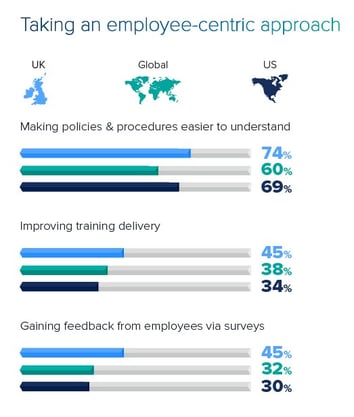
The research further highlights how UK programmes have significantly strengthened in the past year+, across nearly all programme elements identified as needing improvement.
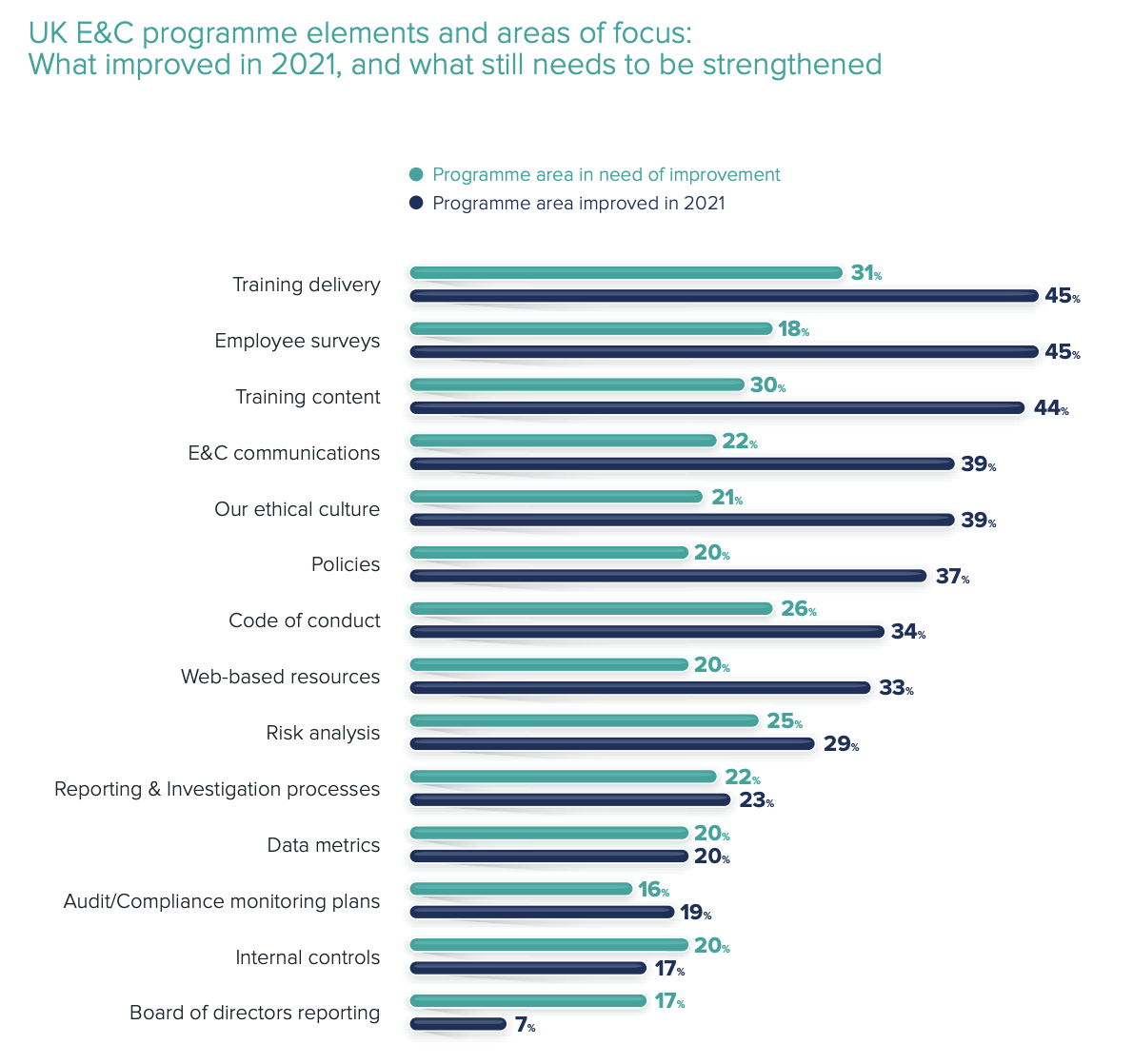
Measurement of ethical culture is an area of opportunity for UK programmes
The UK is behind the curve when it comes to assessing ethical culture. Global regulators increasingly highlight the importance of measuring a company’s “culture of compliance” and the example set by leadership, yet the majority of UK E&C programmes (58%) are still relying on employee engagement surveys with only a few E&C-related questions as their primary measurement of culture.
UK programmes also reported significantly less frequent use of key metrics in evaluating their programmes’ effectiveness in comparison to global data and US programmes. Specifically, UK programmes were less likely to use or measure the following indicators to gauge programme impact and identify areas for improvement:
- Employee engagement with ethics and compliance resources
- Root cause analysis data for compliance lapses
- Misconduct trends and patterns
- Speaking out data
- Hotline complaints
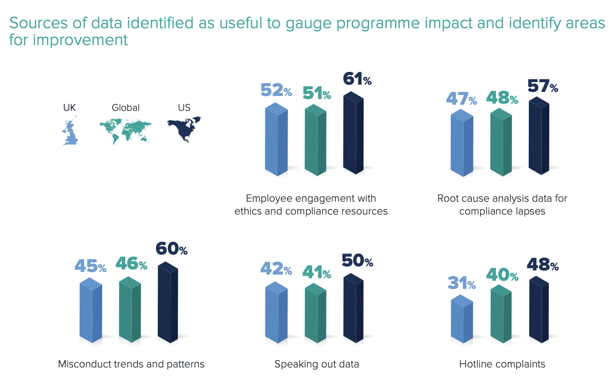
Key takeaways for improving UK E&C programme effectiveness
UK E&C programmes weathered the Covid-19 crisis effectively, continued to strengthen their programmes, and helped employees cope with the consequences. Now that the dust has settled somewhat on the disruptions of the pandemic, UK programmes would benefit even further by bringing a greater focus on using data and drawing from a wider variety of sources to guide continued programme attention and enhancement.
Building a high-impact E&C programme requires prioritising values to catalyse ethical workplace behaviour at every level of the organisation. Actions to consider:
- Make it easy for employees to engage with the programme. If key messages are in the sightlines of employees on a regular basis—through the intranet, mobile apps, signage, internal news programmes, surveys, and the talk tracks and behaviours of executives and managers—they are more likely to resonate.
- Simplify and streamline policies and procedures. Unnecessary complexity is a barrier to comprehension that can signal a lack of respect and understanding for the employee’s position.
- Be proactive by keeping your focus areas fresh and current, from e-learning content to programme experiences for DEI, ESG, data privacy, and other essential initiatives.
- Ensure the board of directors and senior leaders actively support the E&C programme. Build solid and meaningful relationships to ensure ethics, culture, and compliance are prioritised in the company.
- Include an assessment of ethical behaviour in your evaluation, promotion, and bonus processes to ensure that those in positions of leadership, management, or in control functions meet your criteria.
- Emphasise organisational justice. This means holding your senior executives and highest performers to account in the same way you do others in the organisation. One standard for everyone underpins the organisation’s culture and its commitment to corporate values.
Download the UK E&C Programme Effectiveness Report to learn more.
